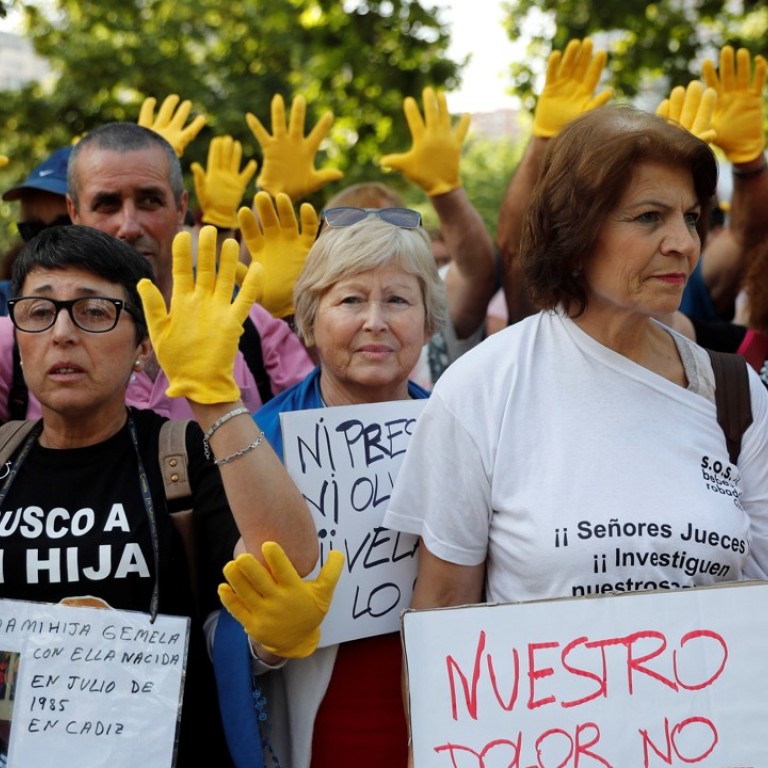
Spain’s first Franco-era ‘stolen babies’ trial gets under way as doctor, 85, takes the witness stand
A former gynaecologist is accused of taking Ines Madrigal away from her mother at birth and giving her to another woman
The first trial in Spain concerning the thousands of babies believed to have been stolen from their mothers during the Franco era opened in Madrid on Tuesday as an 85-year-old Spanish doctor appeared in the dock.
About 50 demonstrators, many wearing yellow T-shirts with the slogan “Justice”, protested outside the court as Eduardo Vela, who worked as a gynaecologist at the now-defunct San Ramon clinic in Madrid, arrived in court.
He is accused of having in 1969 taken Ines Madrigal, now aged 49, from her biological mother and given her to another woman who raised her and was falsely certified as her birth mother.
Prosecutors are seeking an 11-year jail term for falsifying official documents, illegal adoption, unlawful detention and certifying a non-existent birth. Vela denied any wrongdoing as he took the stand.
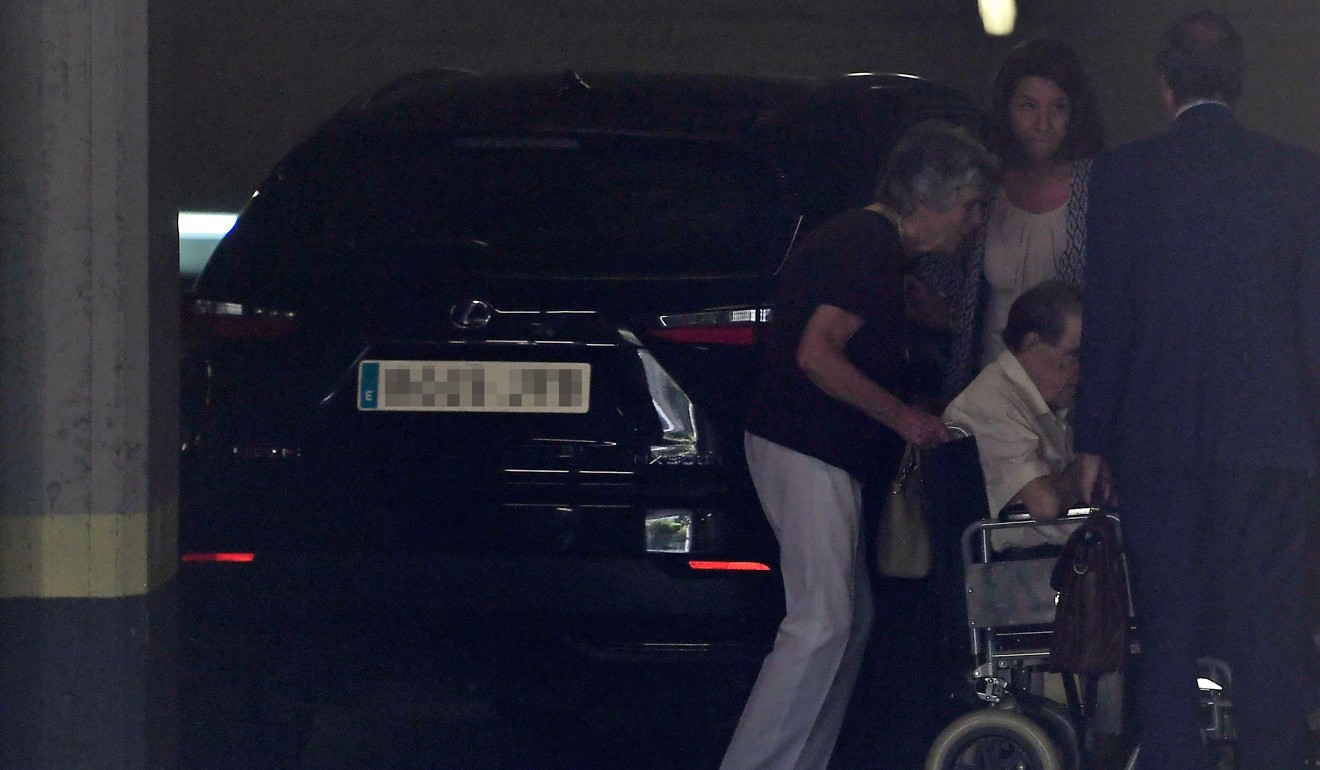
In a dark and often overlooked chapter of General Francisco Franco’s 1939-75 dictatorship, the newborns of some left-wing opponents of the regime were removed from their mothers and adopted, and the practice was later expanded to include the babies of unmarried or poor couples.
Mothers want to tell their children that they did not abandon them … but above all they want to know that they are well
New mothers were frequently told that their babies had died suddenly within hours of birth and that the hospital had taken care of their burials when, in fact, the babies were given or sold to another family.
Madrigal, a railway worker who heads the Murcia branch of the SOS Stolen Babies association, said she did not expect Vela either to provide answers about her origins or to apologise.
But she hoped that his two-day trial would mark a turning point that leads authorities to reopen investigations into other “stolen babies” cases.
“A mother can never forget her son,” she told reporters outside the court.
“Mothers want to tell their children that they did not abandon them … but above all they want to know that they are well.”
Spanish king’s brother-in-law begins prison term for graft
She told the court she had been “devastated emotionally” when she discovered she had been taken from her biological mother.
Vela was interviewed briefly by police after a magazine in 1982 published interviews with several women who claimed they had been cheated of their babies after giving birth at San Ramon, but that probe went nowhere.
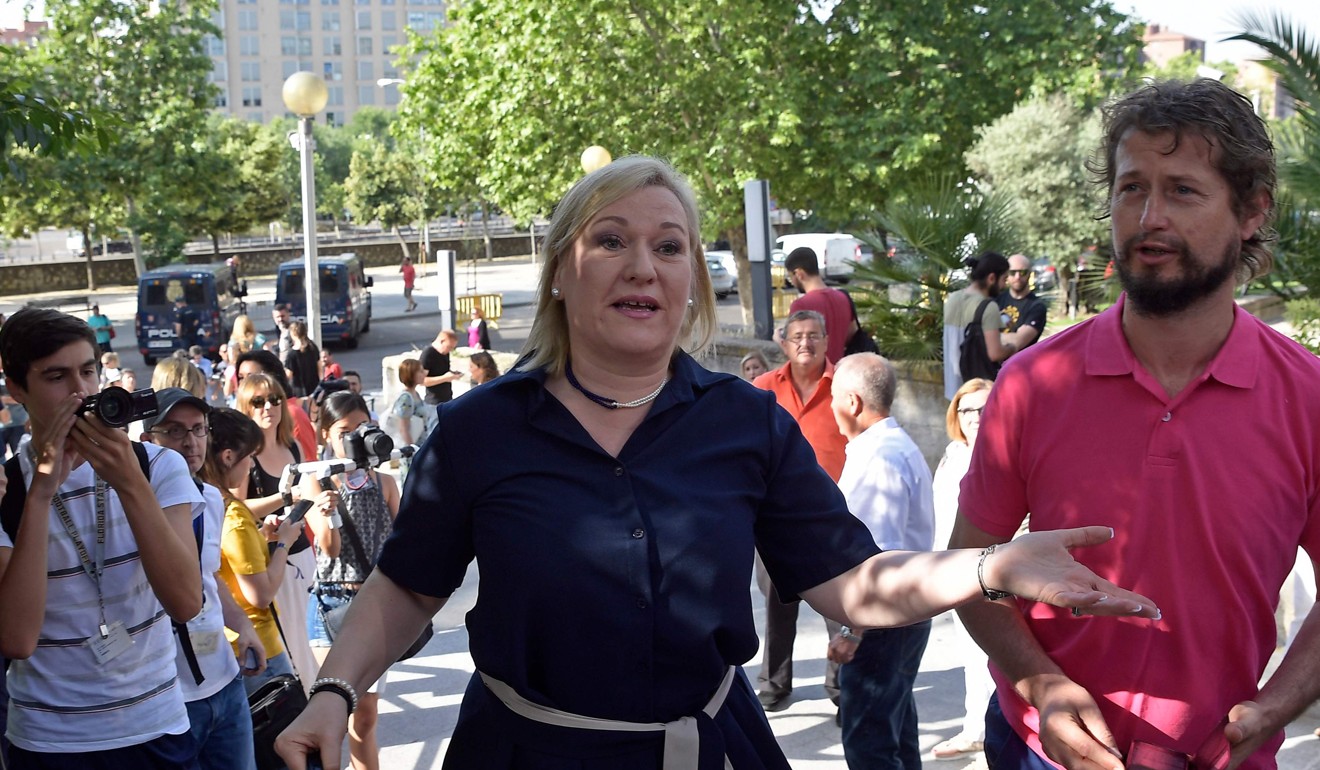
He told investigators in 2013 that as the director of the clinic he often signed papers without reading them. In court on Tuesday he said he could not recall basic information about the clinic and denied the signature on Madrigal’s birth certificate was his.
“That is not mine,” he said in a weak voice when asked to look at the signature.
The trial is to conclude on Wednesday. No date has been set for a verdict.
The practice began after Franco came to power after Spain’s 1936-39 civil war that set left-wing Republicans against conservative Nationalists loyal to the general.
Protests in Spain as five cleared of gang rape in Pamplona
Beginning in the 1950s, it was expanded to remove illegitimate babies as well as newborns from poor families. The guiding principle was that the child would be better off raised by an affluent, conservative and devout Roman Catholic family.
The system – which allegedly involved a vast network of doctors, nurses, nuns and priests – outlived Franco’s death in 1975 and carried on as an illegal baby trafficking network until 1987, when a new law that regulated adoption more tightly was introduced.
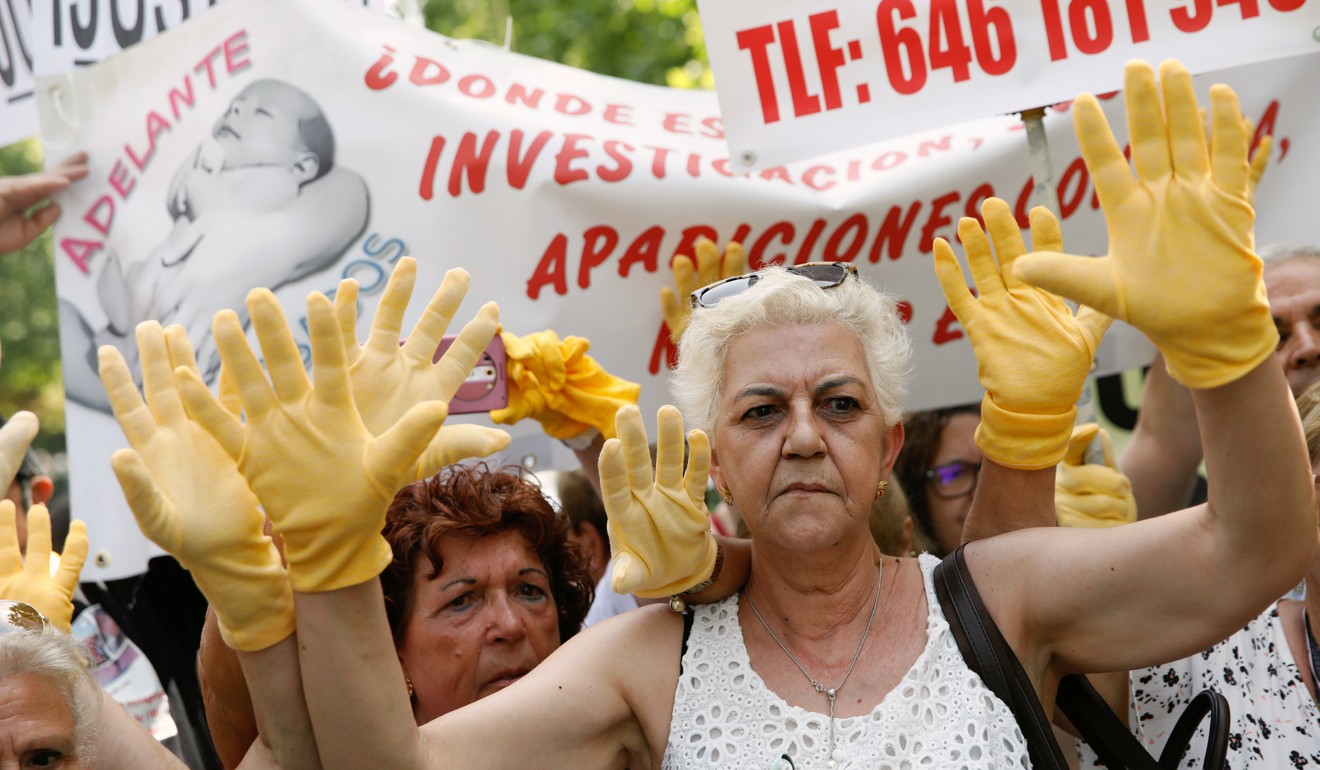
Campaigners estimate that tens of thousands of babies may have been stolen from their parents over the decades.
The scandal has similarities with events in Argentina during its 1976-83 military dictatorship, when around 500 newborns were taken from their mothers and given to couples who supported the regime.
Campaigners say at least 2,000 other complaints for similar cases have been filed but up until now none has gone to trial in a country still coming to terms with the dictator’s legacy.
Cases have been shelved due to a lack of evidence or because the statute of limitations had passed.
Four Chinese arrested in Spain for smuggling glass eels
In 2013, an 87-year-old nun who worked with Vela and appeared in court for questioning as a suspect, died just before she was due to go on trial.
Carmen Lorente, who came from the southern city of Seville to protest outside the court, said she was told her baby son suffocated in the womb in 1979 even though she recalls hearing him cry after giving birth in 1979.
“It is a very important day for all those who are affected and for all mothers. Because a precedent is created by this man sitting in the dock,” she said.
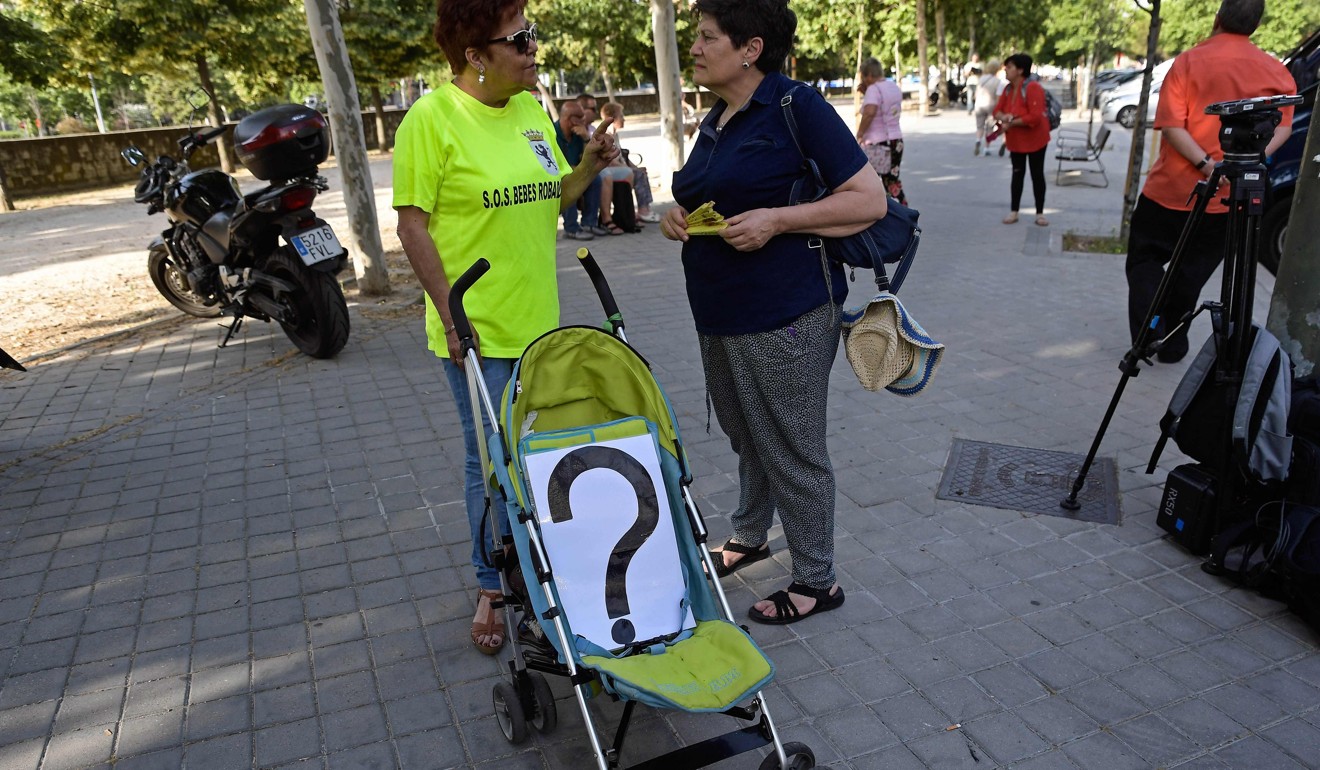

.png?itok=arIb17P0)